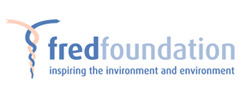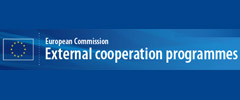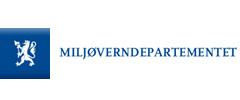Moving Beyond Tokenism of Youth
Our Eco-Forum* youth delegates Mareike Peschau and Nikolina Stålhand report back on their experiences in Ostrava earlier this summer where they participated in WHO’s regional (UNECE) conference on Environment and Health.
21.08.2017 |

Eco-Forum’s youth volunteers together with the WHO’s regional director for Europe, Zsuzsanna Jakab, after the signing of the Ostrava Declaration. Photo: © World Health Organisation
4 days. 17 motivated youth volunteers. A former industrial city in the Czech Republic. Those were the facts that we received when signing up as WECF’s youth delegates to the Eco-Forum alliance attending WHO’s 6th Ministerial Conference on Environment and Health that took place in Ostrava earlier this summer. This delegation is new, and different from the already existing official youth delegation (European Environment and Health Youth Coalition).
Coming from different countries all over Europe and from diverse backgrounds, it was our task to not only represent civil society, but more importantly the youth. Overall, the conference was dedicated to pressing issues regarding Health and Environment in Europe, reaching from chemicals, climate change and air pollution, to water and sanitation. In short: issues that we, as young people, will be confronted with for most parts of our lives. Different to most decision-makers and big polluters that currently shape the future of our environment, it is us young people who have to live with the consequences of their (in)actions.

The former industrial site where the conference was held. Photo: © World Health Organisation
Entering the retired industrial site that was the venue of the conference we clearly noticed: there were not many young people there. Nonetheless, plenary sessions concluded that intergenerational approaches are needed since young people are the future and hence their input needs to be taken into consideration by decision-makers. These well-intended words showed some awareness of the role that young people play in the implementation of environmental and health policies, but did not seem quite enough. Especially, since most young people across Europe may never see an impact on their lives by these conference declarations, as they do not always translate into actions. Therefore, in order to investigate in how far national delegations actually include young people’s issues in their decision-making and to what extent these decisions are later implemented at a national level; we started interviewing conference participants. Particularly on the issue of youth participation in environmental and health issues. Several delegates who were interviewed all agreed that young people play an important role and need to get involved in issues regarding the environment and health. However, when they were asked about how youth more practically could get involved on regional and national level, answers were left very vague.
How do you ensure the voices of youth are heard?
A long silence followed before one of the interviewed delegates, a bit woefully, admitted: that is a very good and important question, but I am not sure we do pay a lot of attention to the inclusion of youth in our daily work at home.
By interviewing and asking delegates questions concerning the (lack of) meaningful youth participation, we were able to make them aware of an issue they might not have given much thought to before. Like one delegate who, after not being able to give a direct answer to the question on how they ensure youth participation on national level, came up to us afterwards. The delegate said that this issue is something they will definitely pay more attention to. Or like another delegate who, many hours after the interview, came back to us with some further reflections on youth participation.
Moving from tokenism to meaningful participation

Our youth delegates networking with decision-makers from all of across the UNECE area. Photo: © World Health Organisation
So the question remains: What can we, as young people, do to ensure that policies are made with our concerns in mind when we are not there to communicate them to decision-makers? How can we as people from different ethnic, economic and social backgrounds all get engaged in pressing issues that are tightly related to human rights concerns such as access to water and sanitation? During the conference we stayed present and made it difficult for decision-makers to oversee us. In a two-hour long tweetathon we used social media to voice our concerns and raising awareness about issues such as gender differences in waste production, recycling of harmful chemicals, and clean alternatives. The aim of our campaign was to reach those outside the decision-making bubble while at the same time making it impossible for decision-makers to ignore our call for change. This strategy, however, cannot be a long-term solution; something that became apparent while participating in the conference.
More specifically, the long-term solution would be to set up structures that ensure active meaningful youth participation in international, national and local decision-making and implementation processes. Inclusion of youth delegates to conferences like this one is crucial and will have a positive impact on the way we ensure the voices of youth to be heard in decision-making processes. We therefore recommend all official delegations to have youths actively participating as informed and empowered speakers with the ability to raise issues with a special concern to their lives and well-being.
We meet and strategized with the official youth delegation (EEHYC). We exchanged views on youth participation in the process. Whereas they brought years of conference experience to the table, we brought knowledge about intersections of environment and health issues from a youth and gender equality perspective. Furthermore, we were able to engage in the policy process by drafting our response to the declaration and thereby bringing forward our own issues. In addition, we helped drafting all interventions that Eco-Forum did during the plenary sessions and thereby directly addressed decision-makers with topics such as youth social entrepreneurship and clean waste alternatives - issues that are of concern to us. Lastly, by participating in panel discussions of different side events. In short, we had the opportunity to be present at all different stages of the conference and to speak on behalf of ourselves rather than have someone else speaking in our name. Not only were we able to learn a lot throughout this process but also found that this might be a part of a possible long-term solution to fight and end tokenism.

Aleksandra Kumbuli delivering her intervention. Photo: © World Health Organisation
In addition, ending tokenism of youth requires an active engagement from organisers of conferences, civil society, participating countries as well as the youth delegates themselves. These structures should give emphasis and extra support to those whose voices are not usually listened to and should therefore be created in a way that reaches everyone, especially the marginalised. As Aleksandra Kumbuli (another Eco-Forum youth delegate) put it in her intervention: ”equity and inclusion starts with prioritising basic services and recognising the diverse needs of for example Roma communities and school girls”.
***
Authors: Mareike Peschau and Nikolina Stålhand.
*European Eco-Forum is an alliance of environmental civil society organisations, facilitated led by WECF International, which holds official observer status to WHO’s regional processes. They work specifically on the environment and health aspects of the WHO and UNECE region.
https://twitter.com/WECF_youth/status/875243698929500160Related News
Moving Beyond Tokenism of Youth
Our Eco-Forum* youth delegates Mareike Peschau and Nikolina Stålhand report back on their experiences in Ostrava earlier this summer where they participated in WHO’s regional (UNECE) conference on Environment and Health.
21.08.2017
UN Summit on Eradicating Poverty and Promoting Prosperity in a Changing World
8 days of advocacy and activism for a gender just future within the SDG process. WECF recently attended the UN summit on the Sustainable Development Goals (High Level Political Forum, HLPF) in New York and reports back on their experiences.
10.08.2017
Youth at the heart of ECO Forum's participation in Ostrava
Reporting back on WHO’s regional conference on environment and health, where WECF (and its ECO Forum delegation of 23 youths and seniors) was to advocate for a healthy future
23.06.2017
"Let's Ensure a Healthy Future" - WECF side event at WHO 6th Ministerial Conference
Protecting children from exposure to harmful chemicals to avoid irreversible damage.
14.06.2017




































